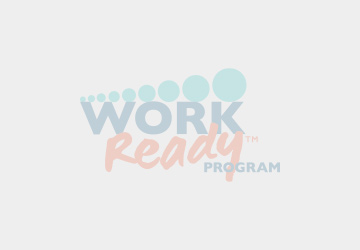
Australia’s Career Teachers – Meet Jon
From barman to barista. Chicken sexer to ward clerk. Concierge to street performer; Jon spent an interesting and varied working life before he came into teaching.
‘Having a number of different jobs and careers in your working lifetime isn’t really new’ he says. ‘The thing is that in the future it will probably be the rule rather than the exception.’
For two years Jon has been Careers/Transitions Advisor at a large secondary school in the outer western suburbs of Melbourne, and he’s quick to say that teaching is the most satisfying (and challenging) career move he has made. He utilised an early Arts Degree to enter Postgraduate studies in Education and as he says, ‘here I am today’.
The school
Jon’s school is a feeder school for around 40 in the area, on the urban/country fringe. The students come from a variety of backgrounds. ‘Families who have been in the area for generations as well as a large new migrant population. There are kids whose first language isn’t English. There are kids from dysfunctional backgrounds. There are high achieving kids and there are those kids who for whatever reason are disengaged. We have it all, and it can make life interesting.’
Jon describes the school community as active and ‘tight knit’. ‘We have a sizeable group of parents and friends who are happy to be involved in community days and fundraising and the school is a hub for sports, language groups and other activities.’ The school prides itself on both the academic achievements of students and its long history of inclusivity.
Wanting the best
‘Parents want what is best for their kids, but they sometimes have a narrow view of what is out there. The focus used to be university or a trade. There are so many more options to pursue, and I’m here to help them investigate those. We encourage students and their families to explore all the possibilities. The trouble is they don’t always know where to start. I always tell them to start at what they enjoy. What they are good at. But be open minded. Give things a go.’
It’s this open mindedness and willingness to give things a go that has opened doors for Jon throughout his life. It has allowed him to travel extensively, support himself throughout and now inspire students to do the same.
Encouragement
‘I encourage my students to listen to other people’s work and life stories to get as many ideas as they can. Make use of family and friends or go further afield. Show up at career events. Ask questions. Get out there and do the research. The workforce is changing and kids need to learn to adapt to the change. We’re in a gig economy.’ (Freelance work and short-term contracts run from digital platforms.) ‘There are digital and communication technologies to keep up with and to exploit, and there are some things that never change. Those hands on, caring careers. Food production. Education. That’s going to be so important into the future.’ ‘And yes’, he says with a laugh, ‘there’s even street theatre. People always need to be entertained!’
Challenges
‘Our school is good at providing opportunities, whether kids are academically inclined or are going to be better off with more practical pursuits. But the reality of it is that for whatever reason, there are still kids that will fall through the cracks. We are getting better at identifying them and adapting to the needs of different demographics, but there is still a long way to go. Under staffing and underfunding hasn’t helped, but we have a really dedicated team of teachers here.’
Skills
‘We tell our students they need to skill up to get into the workforce, but we’re not always explicit enough about what that means. Kids often confuse skilling up with learning new skills that are job specific – and OK, that’s all a part of it too. What they don’t realise is that they are already developing a lot of the skills that will translate into almost anything they go for. I get my students to tell me what it is they do in their home life or school life or sporting life, and then explain how it might be useful in different settings. They need to be able to identify and communicate that to employers or to training organisations. It’s all a part of the bigger picture, and it’s all a part of being more confident in themselves. Communication is one of the most important things they need to practice.’
‘But it’s not just about verbal communication’, Jon adds, ‘it’s about how you present yourself. We do a lot of work on the practical stuff. How to dress. How to be around people respectfully. You might not believe it, but that doesn’t come naturally to some kids.’
Work Experience
‘It’s difficult to find work experience placements these days, and it’s valuable to get a feel for the workplace and relate that back to what we are talking about in the classroom. It doesn’t matter whether it’s in the field they want to pursue. It’s the experience that counts.’ ‘Sure, it’s great if a student who wants to be a sound engineer can get a work experience gig at a sound studio’, Jon adds. ‘It can set up all sorts of opportunities to ask questions and make contacts. But that isn’t always going to be possible. It’s the experience, the experience anywhere that counts.’
Advice to students
‘Give it a go. Whether it’s a new experience, a short course, or the offer of a job after school. Give it a go. If you don’t like it, just remember, nothing is forever. You learn and gain skills and confidence from every experience. Process it, put it all into your resume and take it into your future. In the end, it’s up to you.’
Advice to career teachers new to the job
‘Don’t underestimate the value of the personal knowledge you can pass on to your students. It doesn’t hurt to share stories about your own work, study, and life experiences.’
Last word
‘The skills I’ve picked up in my working life feed into what I’m doing now. I can understand the uncertainty kids have about making career decisions, getting into the right subjects, finding a course or a part-time job. I can relate my own experiences and give them a bit of a sounding board, and maybe take a bit of the pressure off them. I’m living proof that you can try different pathways.



